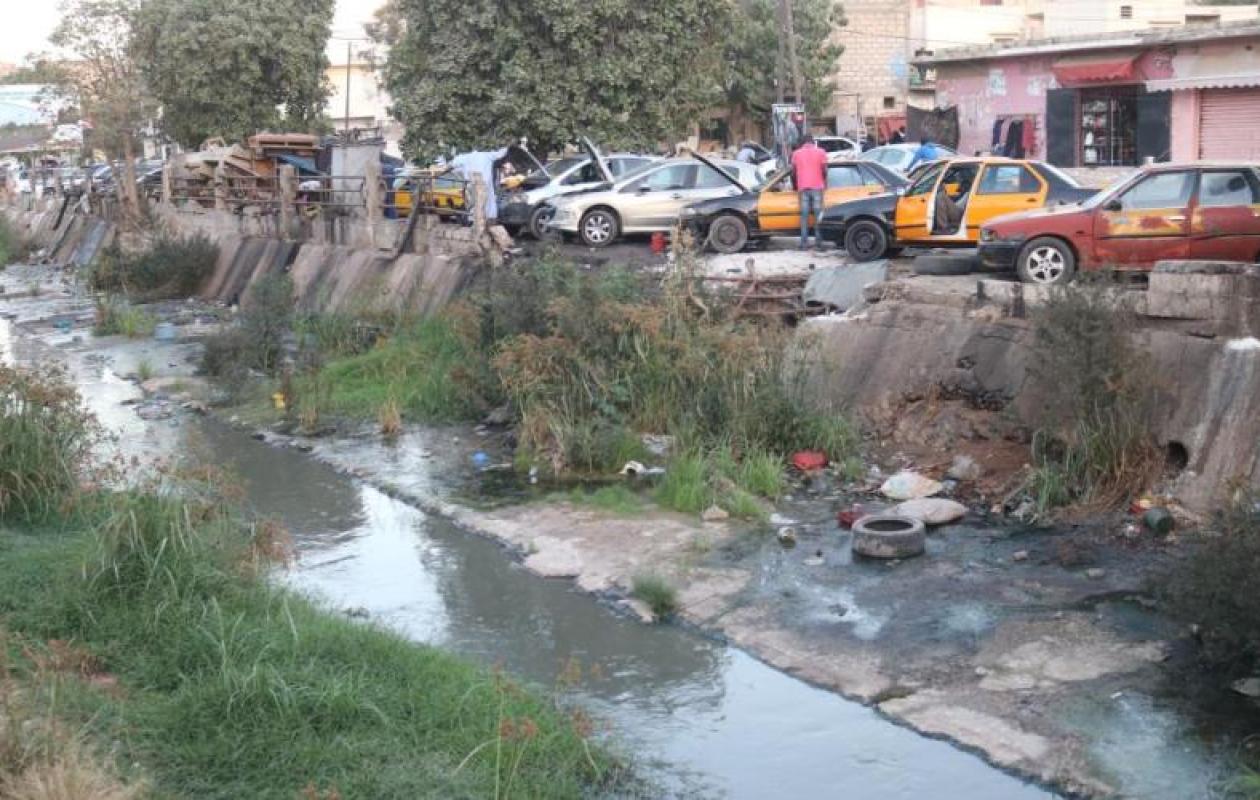
Le prix élevé du "mal de vivre" le long des canaux de Dakar et Rufisque
The deterioration of the urban environment, particularly marked by the presence of open sewers collecting wastewater, has reached a breaking point in the capital and cities like Rufisque. While residents are mobilizing through neighborhood management committees, the scale of the sanitation problem far exceeds the capacity of citizens to act, placing the urgent burden on public authorities.
According to an analysis published in the magazine Environnement Afrique, the amount of environmental and health damage created by these ditches is alarming.
The major issue is public health. The proximity of wastewater creates a fertile breeding ground for various diseases. It is widely recognized that this wastewater can cause diseases transmitted via the fecal-oral route (notably diarrhea, typhoid, hepatitis and cholera), as well as vector-borne diseases (malaria and filariasis).
Residents interviewed for this survey described their daily struggles. The most frequently cited complaints concerned:
The proliferation of mosquitoes and insects : this situation is directly linked to a pandemic of malaria cases, increasing the medical burden on already vulnerable households.
Persistent bad odors : They pollute the air, leading to a "permanent malaise" and constant health risks.
The danger to children : The physical risks to young children, who have difficulty assessing danger in their daily socialization activities, are considered unacceptable.
The sanitation of a city – which is the process of collecting and treating wastewater (toilets, rainwater, drainage) via wastewater treatment plants – is at the heart of the management difficulties of most African capital cities.
Environment Africa emphasizes that a lack of resources and uncontrolled urbanization have raised the problem to a level of complexity that is very difficult to resolve. Neighborhood committees, whose actions are often sporadic and time-limited, admit their powerlessness in the face of these permanent and structural works.
Risky behaviors: a vicious cycle
The situation is exacerbated by the way the local population uses these canals. Often exasperated by these conditions and by the poor management of household waste (irregular collection), residents tend to use the ditches to dump their own garbage.
This dumping—particularly of plastic and solid waste—blocks drainage, creating stagnant water that is even more dangerous to health. The article notes that this behavior by the population has serious consequences, of which they are, paradoxically, the primary victims.
While the abundance of health regulations, parliamentary and municipal decrees passed proves that city officials have not remained indifferent to the hygiene of the city, shortcomings exist somewhere to explain the current situation.
Those interviewed are demanding the implementation of a better sanitation system. The Senegalese government is thus being called upon to prioritize the urgency of the situation and adopt a sanitation plan for all major cities, mobilizing physical, institutional, and social resources for the efficient disposal of wastewater, ultimately minimizing the impact on living conditions and health.
With Environment Africa
Commentaires (5)
Les populations souffrent tellement.
Les eaux usées sont la cause de nombreuses maladies.
L’état doit agir rapidement.
Participer à la Discussion
Règles de la communauté :
💡 Astuce : Utilisez des emojis depuis votre téléphone ou le module emoji ci-dessous. Cliquez sur GIF pour ajouter un GIF animé. Collez un lien X/Twitter ou TikTok pour l'afficher automatiquement.